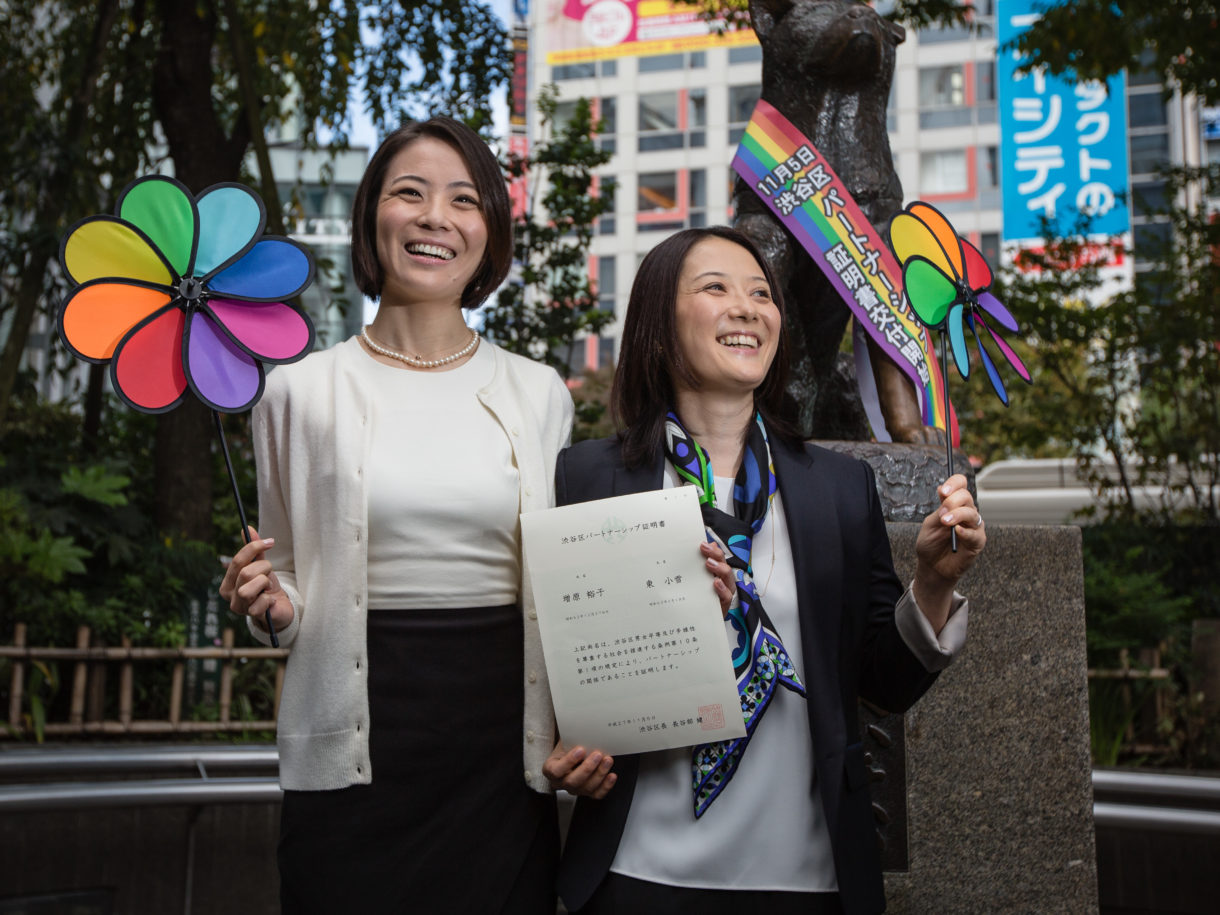Thirteen same-sex couples have filed a lawsuit in Japan arguing that the country’s rejection of same-sex marriage violates their constitutional rights. It’s the first such lawsuit in the country, Japan Times reports.
While no laws on the books technically prohibit same-sex marriage, Japan’s government has interpreted the constitution’s marriage provisions to only permit marriage between heterosexual couples. But that reading ignores other parts of the constitution that guarantee equality, lawyers for the couples say.
“The constitution gives you the right to pursue happiness and equality before the law,” said Yoshie Yokoyama, one of the group’s lawyers, according to the South China Morning Post. “Not recognising same-sex marriage violates this.”
Article 24 of the Japanese constitution states that “Marriage shall be based only on the mutual consent of both sexes and it shall be maintained through mutual cooperation with the equal rights of husband and wife as a basis.” Most municipal governments won’t accept the paperwork needed to register marriages between same-sex couples, the Post reports.
The lawsuits argue that Article 24 should be reinterpreted.
Marriage equality “is already a global trend, and this affects Japan as well,” law professor Ken Suzuki, who helped organize the lawsuits, told the Post. “The government will not be able to ignore the trend of the times. I think that the next country in Asia to achieve marriage equality will be Japan.”
Some municipalities across Japan have started to issue “partnership certificates” to gay and lesbian couples, the Times says. But those certificates don’t grant all the rights that marriage does, such as inheritance rights, visitation rights during health emergencies and spousal visas.
Gay rights activists have accused Japan of being slow to embrace LGBT rights, being the only member of the G-7 that doesn’t recognize same-sex unions. Indeed, Japanese society is generally quite conservative, lawmaker Mizuho Fukushima told the Associated Press. “Many people don’t even think of a possibility that their neighbors, colleagues or classmates may be sexual minorities,” she said. “The pressure to follow a conservative family model, in which heterosexual couples are supposed to marry and have children, is still strong.”
Prime Minister Shinzo Abe has argued that allowing same-sex marriage is an issue that “affects the foundation of how families should be in Japan, which requires an extremely careful examination,” the AP reported. Abe’s government has restarted moral education classes to teach children about the importance of traditional family values and doing good deeds.
But Ai Nakajima, one of the plaintiffs named in the lawsuit, is hopeful that the legal landscape could change. While politicians tend to be older and hesitant to update the law, she told the BBC, “among younger people there is an overwhelming support for gay marriage.”
Same-sex relationships haven’t always been frowned upon in Japanese culture, Japan Today reports. “Historically, Japan was broadly tolerant of homosexuality, with documented cases of samurai warriors during feudal times having male lovers,” Japan Today wrote. “But as Japan industrialized and modernized from the late 19th century, Western prejudices against homosexuality were increasingly adopted.”
9(MDEwNzczMDA2MDEzNTg3ODA1MTAzZjYxNg004))
